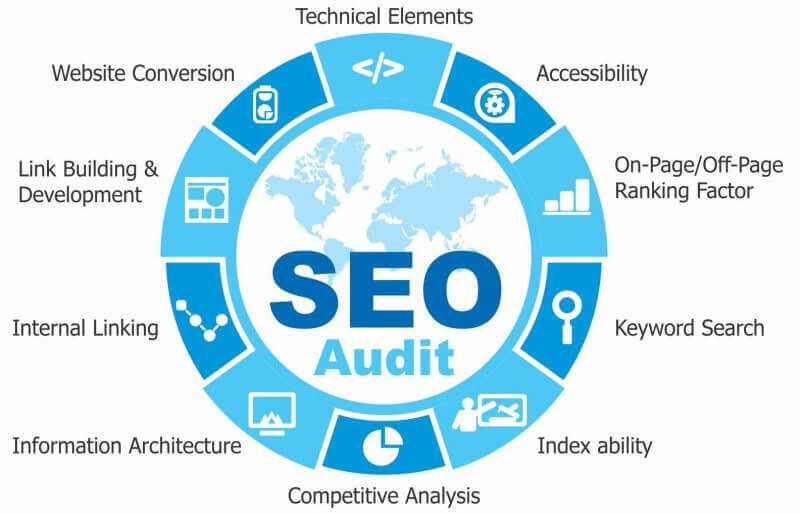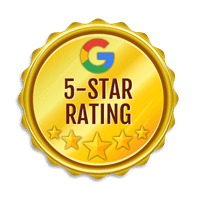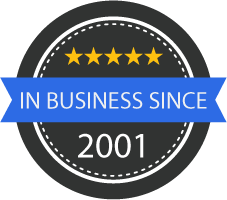5 Best Tips for Designing a website From Best Houston Website Designer to Rank Well on Google
Designing a website ranking well on Google requires a strategic approach that blends creativity and technical know-how. Google’s search algorithm considers numerous factors when determining which sites appear at the top of search results. These factors include the quality and relevance of your content, the use of targeted keywords, the speed and responsiveness of your site, and the overall user experience.
By focusing on these elements, Houston Website Designer can create a website that stands out visually and ranks highly on Google. Here are some essential tips to help you design a website that excels in aesthetics and performance, ensuring your site attracts more visitors and achieves better search engine rankings.
Prioritize User Experience (UX)
User experience (UX) is a critical factor that Google considers when ranking websites. A website that is easy to use, visually appealing, and provides valuable content will keep visitors engaged and encourage them to stay longer. This, in turn, signals to Google that your site is valuable and relevant.
To create a superior UX, focus on the following elements:
- Responsive Design: Ensure your website is mobile-friendly and adapts seamlessly to different screen sizes. With the increasing use of mobile devices, Google prioritizes mobile-first indexing.
- Intuitive Navigation: Design your website with clear and logical navigation. Users should be able to find information quickly without having to dig through multiple pages.
- Fast Loading Times: Page speed is a crucial ranking factor. Optimize images, leverage browser caching, and minimize JavaScript to reduce loading times.
- Engaging Content: Create high-quality content that is informative, well-structured, and visually appealing. Use headings, bullet points, and images to break up text and make it easier to read.
Optimize for Houston SEO
Search engine optimization (SEO) is the practice of improving your website’s visibility on search engines. Effective SEO involves both on-page and off-page strategies that work together to boost your rankings.
- Keyword Research: Identify the keywords your target audience is searching for and incorporate them naturally into your content. Use tools like Google Keyword Planner or SEMrush to find relevant keywords with high search volume and low competition.
- Meta Tags: Optimize your meta titles and descriptions with targeted keywords. These tags provide a summary of your content and help search engines understand what your page is about.
- Header Tags: Use header tags (H1, H2, H3, etc.) to structure your content. This not only makes it easier for users to read but also helps search engines understand the hierarchy of your content.
- Alt Text for Images: Use descriptive alt text for images to help search engines understand the content of your images. This can also improve your website’s accessibility.
Create High-Quality Content
Content is king in the world of SEO. High-quality, relevant content not only attracts visitors but also encourages them to stay longer and explore more pages on your site. Here are some Houston SEO tips for creating compelling content:
- Originality: Produce unique and original content that provides value to your audience. Avoid duplicating content from other websites, as this can harm your rankings.
- Informative and Engaging: Your content should be informative, engaging, and well-researched. Use data, statistics, and real-life examples to support your points.
- Regular Updates: Keep your content fresh and up-to-date. Regularly updating your blog or website with new content signals to Google that your site is active and relevant.
- Content-Length: Longer content tends to rank better on Google. Aim for in-depth articles that thoroughly cover a topic, as these are more likely to satisfy user intent.
Build a Strong Backlink Profile
Backlinks, or inbound links from other websites, are a significant ranking factor for Google. A strong backlink profile indicates to search engines that your website is authoritative and trustworthy. Here’s how to build quality backlinks:
- Guest Blogging: Write guest posts for reputable websites in your industry. This not only helps you gain exposure but also provides valuable backlinks to your site.
- Create Shareable Content: Produce highly shareable content, such as infographics, videos, and in-depth guides. When others share your content, it can generate natural backlinks.
- Reach Out to Influencers: Connect with influencers and industry experts who can share your content and provide backlinks. Building relationships with these individuals can significantly boost your site’s authority.
- Monitor Backlinks: Use tools like Ahrefs or Moz to monitor your backlink profile. Ensure that your backlinks are from reputable sources and disavow any spammy or low-quality links.
Optimize for Houston SEO
If your business serves a specific geographic area, optimizing for local SEO can help you attract more local customers. Google My Business (GMB) is a powerful tool for local SEO that allows you to manage your online presence across Google, including Search and Maps.
- Google My Business Profile: Create and optimize your GMB profile with accurate business information, including your address, phone number, business hours, and services. Encourage satisfied customers to leave positive reviews, as these can significantly impact your local rankings.
- Local Keywords: Incorporate local keywords into your content and meta tags. For example, if you’re a shed builder in Eugene, use keywords like “Eugene shed builders” or “shed construction in Eugene.”
- Local Citations: Ensure your business information is consistent across all online directories and citation sites, such as Yelp, Yellow Pages, and local chamber of commerce websites.
- Localized Content: Create content that is relevant to your local audience. This could include blog posts about local events, news, or community involvement related to your business.
Conclusion – #1 Best Houston SEO
By implementing these tips, Houston Website Designer can design a website that not only ranks well on Google but also provides a valuable and enjoyable experience for your users. Consistent effort and attention to detail in these areas will help you achieve long-term success in the ever-evolving landscape of SEO.
Also, for more details contact the SEO Web Design Houston team at (832) 713-6365 today and start your journey to design the best website for your organization.














 OUR GUARANTEE
OUR GUARANTEE LOCAL WEBSITE DESIGNERS & HOUSTON SEO EXPERTS – CALL US
LOCAL WEBSITE DESIGNERS & HOUSTON SEO EXPERTS – CALL US